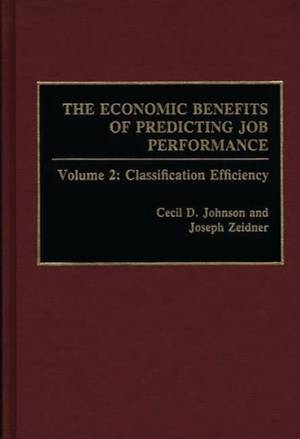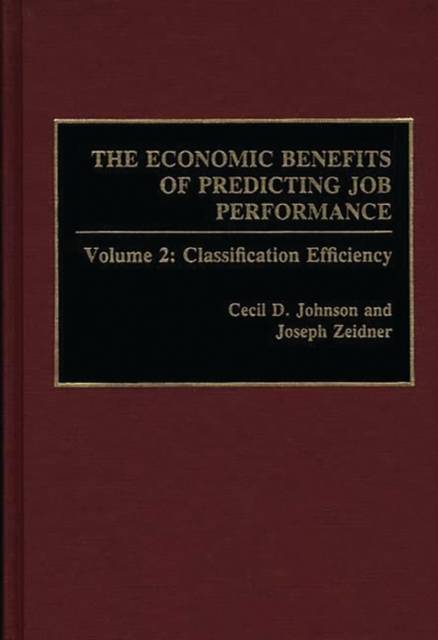
- Retrait gratuit dans votre magasin Club
- 7.000.000 titres dans notre catalogue
- Payer en toute sécurité
- Toujours un magasin près de chez vous
- Retrait gratuit dans votre magasin Club
- 7.000.000 titres dans notre catalogue
- Payer en toute sécurité
- Toujours un magasin près de chez vous
The Economic Benefits of Predicting Job Performance
Volume 2: Classification Efficiency
Joseph Zeidner, Cecil D Johnson, Joseph ZeiderDescription
Designed as a comprehensive text for advanced courses in personnel selection and classification, the three volumes that comprise The Economic Benefits of Predicting Job Performance take a different approach than that taken in most previous works on the subject. While most texts focus on selection and psychological measurement to the exclusion of classification, these volumes summarize the major theories and research findings in both areas and provide a thorough treatment of classification processes. This is the first text providing more than a chapter on classification since Cronbach and Gleser's historic work in 1965. Cecil D. Johnson and Joseph Zeidner discuss the central topics involved in the practical prediction of job performance, including validity and utility models and research strategies and designs. Based on their analysis, they introduce a new theory, the differential assignment theory, and illustrate the mathematical principles that govern its use in personnel classification. Throughout, the authors are concerned with the realistic applications of specific procedures to maximize both selection and classification efficiency.
This volume begins with an overview that describes the major issues and highlights important findings and conclusions. Volume 2 begins with a taxonomy of personnel selection, classification, and placement--going on to address the measurement of classification effectiveness and ways to improve it. The use of model sampling and simulation as a tool for measuring utility, potentially available from personnel classification, is described. This volume concludes with a glossary and list of references.Spécifications
Parties prenantes
- Auteur(s) :
- Editeur:
Contenu
- Nombre de pages :
- 288
- Langue:
- Anglais
Caractéristiques
- EAN:
- 9780275939588
- Date de parution :
- 23-10-91
- Format:
- Livre relié
- Format numérique:
- Genaaid
- Dimensions :
- 164 mm x 241 mm
- Poids :
- 603 g







